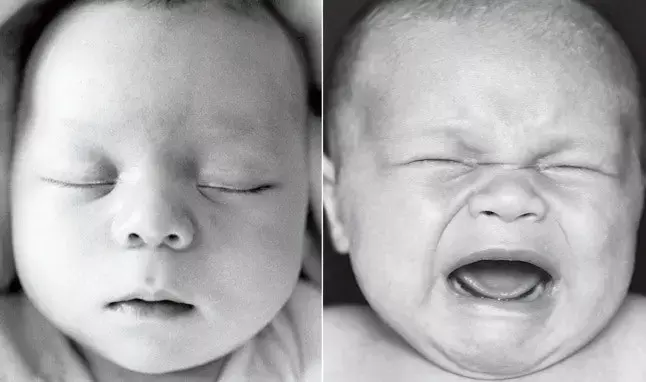- Home
- Medical news & Guidelines
- Anesthesiology
- Cardiology and CTVS
- Critical Care
- Dentistry
- Dermatology
- Diabetes and Endocrinology
- ENT
- Gastroenterology
- Medicine
- Nephrology
- Neurology
- Obstretics-Gynaecology
- Oncology
- Ophthalmology
- Orthopaedics
- Pediatrics-Neonatology
- Psychiatry
- Pulmonology
- Radiology
- Surgery
- Urology
- Laboratory Medicine
- Diet
- Nursing
- Paramedical
- Physiotherapy
- Health news
- Fact Check
- Bone Health Fact Check
- Brain Health Fact Check
- Cancer Related Fact Check
- Child Care Fact Check
- Dental and oral health fact check
- Diabetes and metabolic health fact check
- Diet and Nutrition Fact Check
- Eye and ENT Care Fact Check
- Fitness fact check
- Gut health fact check
- Heart health fact check
- Kidney health fact check
- Medical education fact check
- Men's health fact check
- Respiratory fact check
- Skin and hair care fact check
- Vaccine and Immunization fact check
- Women's health fact check
- AYUSH
- State News
- Andaman and Nicobar Islands
- Andhra Pradesh
- Arunachal Pradesh
- Assam
- Bihar
- Chandigarh
- Chattisgarh
- Dadra and Nagar Haveli
- Daman and Diu
- Delhi
- Goa
- Gujarat
- Haryana
- Himachal Pradesh
- Jammu & Kashmir
- Jharkhand
- Karnataka
- Kerala
- Ladakh
- Lakshadweep
- Madhya Pradesh
- Maharashtra
- Manipur
- Meghalaya
- Mizoram
- Nagaland
- Odisha
- Puducherry
- Punjab
- Rajasthan
- Sikkim
- Tamil Nadu
- Telangana
- Tripura
- Uttar Pradesh
- Uttrakhand
- West Bengal
- Medical Education
- Industry
Colic & Sleep Problems in infancy tied to Behavioral Problems in kids

Crying and sleep problems in infancy are common concerns for parents, often resulting in increased use of multiple health services. Sleep problems have different presentations and rates at different ages, and the prevalence varies depending on the criteria used. A crying duration exceeding 3 h/24 h for at least 3 days of at least 3 weeks is typically known as 'colic'. Infantile colic affects between 17 and 25% of infants during the first months of life. Colic and sleep problems early in life should be taken into account as risk factors for development and behavioural problems within the first 5 years of a child's life suggests a study published in the BMC Pediatrics on January 07, 2021.
Although infant crying and sleep problems are usually regarded as self-resolving, there is conflicting evidence on their association with adverse medium to long-term outcomes. Previous research represents important steps toward identifying the long-term outcome of colic and sleep problems in children. However, these studies have limitations and the association between sleep and colic problems in infancy and subsequent development, emotional and behaviour problems in young children remains unclear. Therefore researchers of the Oslo Metropolitan University, Oslo, Norway, conducted a study to examine the association between infants' crying and sleep problems at 6 months and behavioural and development problems at 18 months, 3 and 5 years.
Researchers conducted a population-based longitudinal study based on data from the Norwegian Mother, Father and Child Cohort Study (MoBa), conducted at the Norwegian Institute of Public Health from June 1999 to December 2008. They identified 86,724 children and collected data using questionnaires given to mother at four-time points when the child was 6 months, 18 months, 3 years and 5 years. They used Z-scores to assess the differences between groups of children (e.g. having colic or not, having a sleep problem or not). They measured emotional and behavioural problems with items from the Child Behaviour Checklist. Development problems were measured with items from The Ages and Stages Questionnaire.
Key findings of the study were:
• Researchers noted, Infants with colic, scored significantly lower on development at 5 years (B=-0.10) and higher on internalising problems both at 3 years (B=0.15) and 5 years (B=0.17) than the reference population.
• They observed, Children who awoke frequently and were more difficult to put to bed at 6 months scored significantly lower on development at 18 months and 3 and 5 years, and higher on internalising behaviour problems at 3 and 5 years (B=0.18 and B=0.16)
They noted, Children with shorter sleep duration at 6 months had more internalising behaviour problems at 3 years (B=0.14) and 5 years (B=0.15) than the reference population.
The authors concluded, "This large population-based study revealed that colic and disruptive sleep early in life may be risk factors for developmental and behavioral problems within the first 5 years of a child's life. It is important to be aware that disruptive sleep and colic in infancy may have long-term negative consequences. Thus, early intervention should be a part of a comprehensive plan to prevent behavioural and developmental difficulties".
For further information:
Medical Dialogues Bureau consists of a team of passionate medical/scientific writers, led by doctors and healthcare researchers. Our team efforts to bring you updated and timely news about the important happenings of the medical and healthcare sector. Our editorial team can be reached at editorial@medicaldialogues.in.
Dr Kamal Kant Kohli-MBBS, DTCD- a chest specialist with more than 30 years of practice and a flair for writing clinical articles, Dr Kamal Kant Kohli joined Medical Dialogues as a Chief Editor of Medical News. Besides writing articles, as an editor, he proofreads and verifies all the medical content published on Medical Dialogues including those coming from journals, studies,medical conferences,guidelines etc. Email: drkohli@medicaldialogues.in. Contact no. 011-43720751


